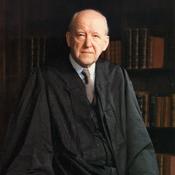Romans 11:25-27 — God’s sovereignty and humanity’s responsibility can be difficult to reconcile, especially when reading different passages in the Bible that seem to be contradictory. In this sermon on Romans 11:25–27 titled “The Mystery Revealed,” Dr. Martyn Lloyd-Jones leads through a phrase-by-phrase analysis of one such passage. The word blindness here, he says, is actually better translated as “hardened.” What does Paul mean by saying that Israel has been hardened? Dr. Lloyd-Jones provides reasons and evidence as to why this most likely refers to the majority of the Israelite nation as a whole, not every individual Israelite, since some of the Jews were indeed saved and thus were shown not to be hardened. As the rest of this passage states, this blindness was only temporary— God established it and God took it off at the fullness of the Gentiles. To better understand this oft-confused phrase, Dr. Lloyd-Jones presents the various views and why it makes sense that Paul is making another broad reference, this time indicating a majority of Gentiles. The passage ends by saying that “all Israel will be saved.” This meaning, too, has been hotly debated throughout church history. Dr. Lloyd-Jones demonstrates his reasoning as to why he believes it is not referencing all the elect Jews as a whole, nor the elect Jews and Gentiles combined, but a different group altogether. Listen as he methodically steps through this difficult passage to help the listener better understand its meaning and application for their lives.
To support this ministry financially, visit: https://www.oneplace.com/donate/603/29?v=20251111



